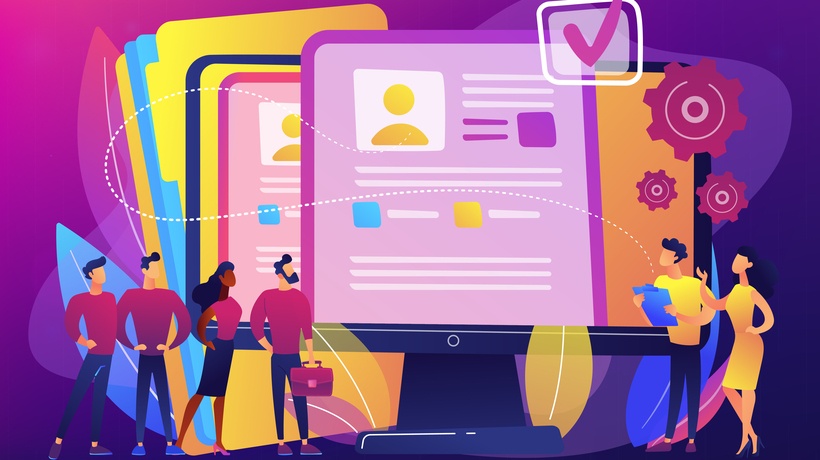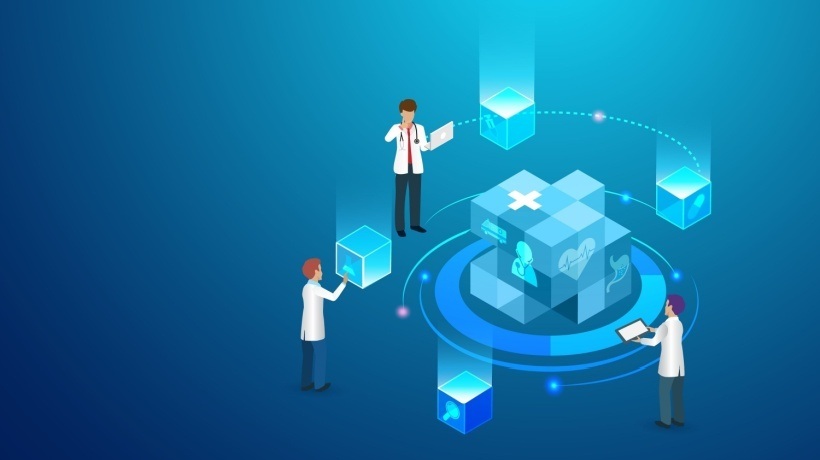How HR Software Benefits The Healthcare Sector
The role of HR professionals in the healthcare industry is growing steadily. The healthcare sector needs an efficient people management system more than any other sector because these employees are given the most important responsibility of saving others’ lives. How healthcare employees are managed directly impacts the quality of healthcare offered to patients. This, in turn, influences patient experience, satisfaction, and care. It’s highly essential to have an efficient HR process that meets the needs of healthcare employees.
What Are HR Challenges In Healthcare?
The healthcare industry, which is highly regulated, presents several challenges to its HR professionals. To overcome these challenges and offer better healthcare services, it’s essential to understand them.
Here we have listed some of the biggest challenges to HR professionals in the healthcare sector:
Employee Turnover
Employee turnover is one of the biggest challenges that the healthcare sector is facing now. According to the National Healthcare Retention and RN Staffing Report, the turnover rate was 17.8% in 2019 for the hospital industry. This can hinder the service delivered to patients and your organization’s bottom line. Providing a better employee experience can help reduce the turnover rate.
Learning And Development Opportunities
Healthcare employees need to constantly upgrade their skills to keep up with the dynamic of the industry. This is a huge challenge, as the HR departments have to conduct meaningful training programs regularly to help employees perform well. Every single employee including nurses, technicians, doctors, and more have to be trained according to the nature of their job, and this can be a little overwhelming.
Compliance
Ensuring compliance in the healthcare industry is a little challenging, as HR professionals deal with a huge amount of sensitive data. Also, they have to meet the reporting requirements mentioned in the Affordable Care Act (ACA). Regular certifications, thorough background checks for employees, and complex licensing documents are just some of the many things that HR professionals should take care of to ensure compliance. This takes a substantial amount of time and effort.
Employee Burnout
According to research conducted by NEJM Catalysts, about 96% of healthcare professionals agree that employee burnout is one of the serious issues facing the healthcare sector. Overworking, under-appreciation, lack of work-life balance, and loss of autonomy are some of the major causes of burnout among healthcare officials. The increased amount of burnout among employees can affect the patient care delivered by your organization.
These challenges are evidence of the amount of pressure on HR professionals in the healthcare industry. To reduce this pressure, it’s necessary to take advantage of the technology tools that are available in the market. One is HR software. With suitable HR software, every single HR operation from onboarding to offboarding can be simplified and automated. This goes a long way in improving employee experience and satisfaction, which is the need of the hour for healthcare workers.
Here are different ways in which HR software can improve the HR practices for the healthcare sector:
Improve Communication Among Staff
Effective communication is crucial among healthcare professionals to ensure that patients receive better healthcare facilities. Technicians, doctors, nurses, and specialists need to communicate with each other constantly to exchange vital information about a patient’s health progress. Communication errors can sometimes lead to irreversible consequences. This is where HR software can help. Using HR software, employees can communicate with each other from anywhere. Dedicated internal group chats can be created. With live feeds and notifications, your employees can be well-informed on all important developments. Employees can initiate and join a discussion in a common thread online, which improves the decision-making process. The employee directory also allows employees to contact their peers any time, which will be useful especially during emergencies.
Facilitates Learning And Development Programs
It’s imperative to provide continuous Learning and Development opportunities for healthcare professionals to help them provide excellent patient care. With the Learning Management System (LMS) inside HR software, multiple courses can be created at a time. This can be beneficial, especially for the healthcare sector. With organizations implementing new advanced technologies to improve healthcare facilities, different courses can be created to help employees get used to the tech tool. They can select any course that applies to the nature of their work. Also, an LMS supports different learning strategies, allowing employees to study according to their preferences. The mobile learning feature allows employees to access their learning materials from anywhere at any time.
Eases Compliance
The large amount of sensitive employee and patient data, as well as the changing regulations, make compliance difficult. Using HR software, all the issues related to compliance can be easily sorted. All the necessary forms can be shared, filled, and stored online. As all the documents are stored online, finding the relevant ones during an audit is not difficult. The timesheets and attendance management features of the HR software records the working time of employees accurately. The risk of errors is low because everything is automated.
Manage Different Shifts Effortlessly
Most healthcare employees work around the clock. Managing employee shifts can be exhausting, considering the ever-changing schedules. With the shift-scheduling feature in HR software, employee scheduling is a breeze. Shifts can be created for multiple employees at once. A particular shift can be scheduled for an employee for a certain period, and the set schedule can be changed at any time. Employees will get instant notifications if there is any change in their existing schedule.
Helps Employees Perform Better
Providing high-quality patient care is one of the major objectives of healthcare organizations. This is completely dependent on how your employees perform. With features like 360-degree feedback, multi-rater feedback, continuous review, skillset matrices, and nine-box models, employee performance can be greatly improved. Goals can be set for a certain period and the employee’s performance can be tracked throughout the time. When employees are well aware of their goals, they will be able to work toward them better. Performance Management can go a long way in decreasing employee burnout, as employees and reporting managers stay on the same page.
Enhances Employee Experience
Creating a great employee experience can play a significant role in decreasing the employee turnover rate in the healthcare sector. The whole purpose of HR software is to give a better experience to employees. Employees are empowered to maintain and track their activities. They can access any information at their convenience, reducing their dependency on the HR department. They can also apply for time off from their own devices. This can make employees more satisfied and happy. People analytics, one of the most essential features of HR software, provides valuable insights about your employees. This helps you to understand your employees and make meaningful decisions to improve their experience.
HR processes, especially for a highly regulated sector like healthcare, should be automated and simplified. With suitable HR software, employees can stay connected and perform all HR tasks from a single location. This saves a lot of time for both the HR department and employees.








